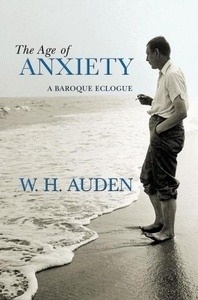The Age of Anxiety

Editorial Princeton
Fecha de edición marzo 2011
Idioma inglés
EAN 9780691138152
200 páginas
Libro
encuadernado en tapa dura
Resumen del libro
When it was first published in 1947, The Age of Anxiety--W. H. Auden's last, longest, and most ambitious book-length poem--immediately struck a powerful chord, capturing the imagination of the cultural moment that it diagnosed and named. Beginning as a conversation among four strangers in a barroom on New York's Third Avenue, Auden's analysis of Western culture during the Second World War won the Pulitzer Prize and inspired a symphony by Leonard Bernstein as well as a ballet by Jerome Robbins. Yet reviews of the poem were sharply divided, and today, despite its continuing fame, it is unjustly neglected by readers.
This volume--the first annotated, critical edition of the poem--introduces this important work to a new generation of readers by putting it in historical and biographical context and elucidating its difficulties. Alan Jacobs's introduction and thorough annotations help today's readers understand and appreciate the full richness of a poem that contains some of Auden's most powerful and beautiful verse, and that still deserves a central place in the canon of twentieth-century poetry.
Biografía del autor
x{0026}lt;P x{0026}lt;B W. H. Audenx{0026}lt;/B nació en la ciudad inglesa de York en 1907. Estudió en el Christ Church de Oxford, donde coincidió con otros escritores como Stephen Spender, Louis MacNeice o Christopher Isherwood. En 1930, su libro x{0026}lt;I Poems x{0026}lt;/I sentó las bases de su prestigio como una de las voces más originales y contundentes de su generación. Durante la década de los años treinta del siglo XX, viajó por Alemania, Islandia, China y España, donde fue testigo de la guerra civil española. En 1939 abandonó Europa y se trasladó a Estados Unidos, país del que adquirió la nacionalidad y en el que conoció a Chester Kallman, su compañero de toda la vida, y cambió de piel ideológica y estilística: del socialismo y el psicoanálisis regresó a las preocupaciones cristianas y teológicas. En 1948 recibió el Premio Pulitzer de poesía y, en 1956, ganó el National Book Award. Ese mismo año fue nombrado profesor de poesía en Oxford, ciudad a la que finalmente regresó en 1970. Murió en Viena en 1973.x{0026}lt;/P








